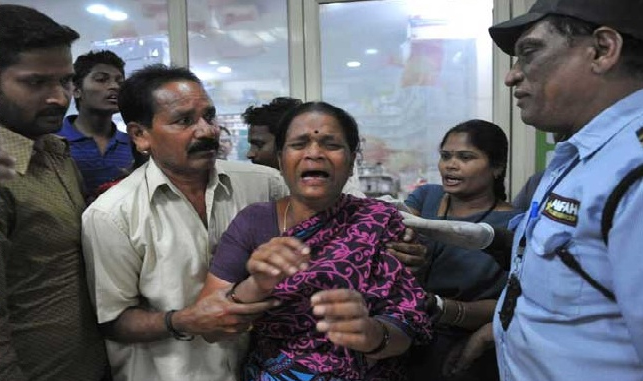
Hyderabad, Mar 1: A breakthrough eludes police even a week after the terrorist attack in Hyderabad that killed 16 people and injured over 100.
Despite claims by the police of obtaining many clues, it appears to be still groping in the dark. No one has been arrested so far in connection with the twin bomb blasts, though police picked up for questioning many youth including some who were acquitted in 2007 Mecca Masjid blast.
The multi-agency investigators have yet to establish identity the terror group behind the blasts.
The terror attack in the crowded Dilsukhnagar area Feb 21 evening killed 16 people and left 117 others wounded.
Under fire for its failure to prevent the attacks despite admission by alleged operatives of the banned terror outfit Indian Mujahideen (IM) that they recceed Dilsukhnagar, the Andhra Pradesh Police may hand over the probe to National Investigation Agency (NIA).
A Delhi court Thursday sent two alleged operatives of IM, lodged in Tihar Jail, to NIA custody for questioning.
The NIA will question Syed Maqbool and Imran Khan for five days. The two were arrested late last year in 2012 Pune blasts case.
NIA, which has already spread the probe to several states, is looking to piece together the information to track down the culprits.
Since the blasts took place on the border between Hyderabad and Cyberabad police commissionerates, the police of both the commissionerates are probing the attacks besides Special Investigation Team (SIT), Crime Investigation Department (CID) Counter-Intelligence and Octopus, the anti-terror wing of state police.
The NIA, Intelligence Bureau (IB) and National Security Guard (NSG) are also participating in the investigations.
Andhra Pradesh Home Minister Sabita Indra Reddy is still confident of cracking the case 'soon'.
"The investigations have been intensified. The culprits will be arrested soon," she said.
"There is lot of data available to us. We are very close to solve the case. It is only a matter of time we get a breakthrough," claimed Director General of Police V. Dinesh Reddy.
He also did not agree that there is no coordination due to several agencies involved in the probe.
The police are likely to release soon the sketches of two suspects, whose images were captures on Closed Circuit Television (CCTV) cameras installed in the area.
Since the images recorded on a CCTV camera mounted at a traffic signal near the blast site are unclear, the police have taken help of the experts to identify the suspected bomb planters.
The police are also scanning CCTV footage from the shops in the area to identify two men who suspected to have planted Improvised Explosive Devices (IEDs) on cycles at the two sites before triggering them with timers.
The condition of five injured in the blast still remained critical. They are undergoing treatment along with 10 others at two different hospitals. The other injured have been discharged.





Comments
Add new comment